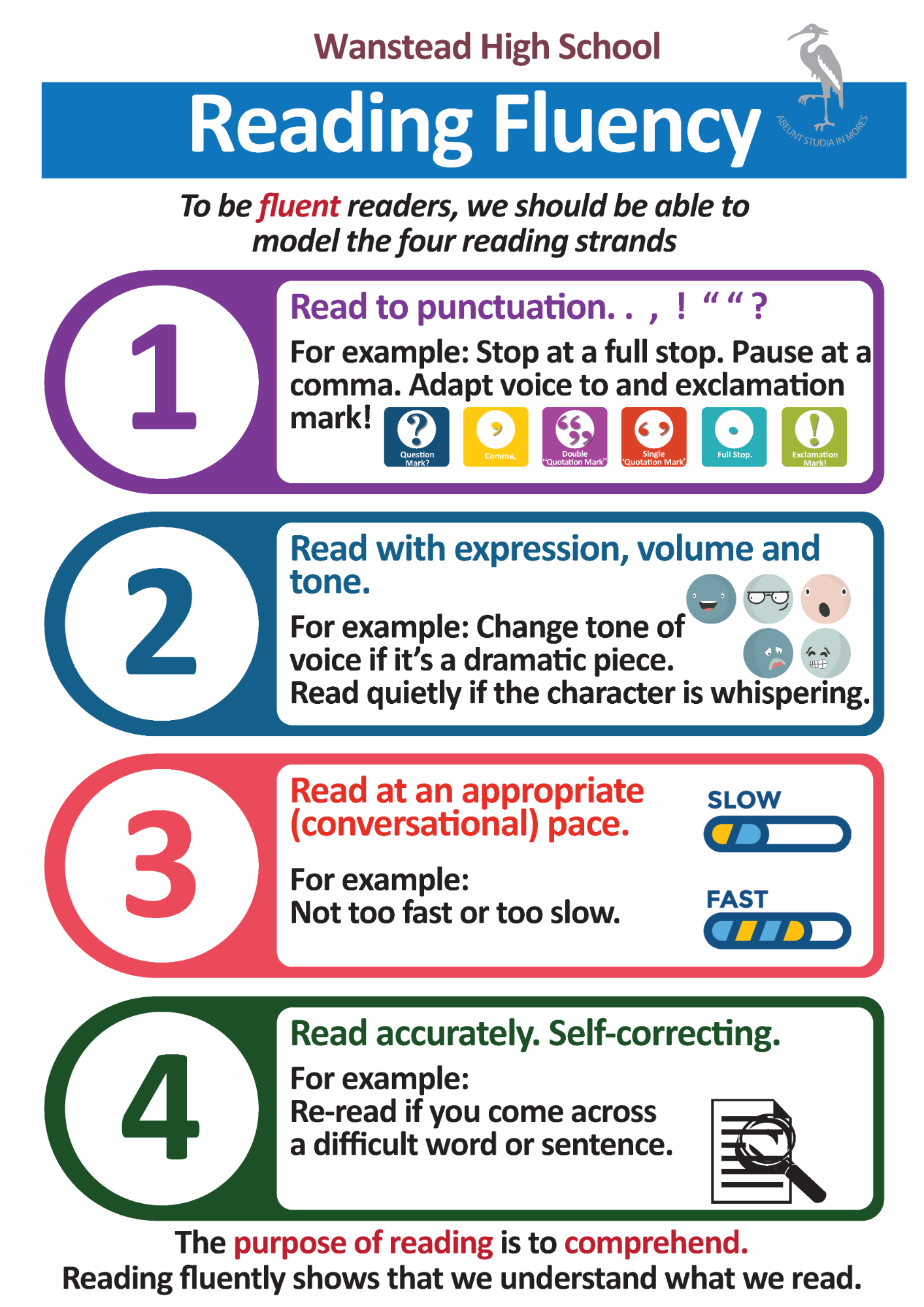- Home
- Curriculum and Quality of Education
- Reading and Vocabulary January 2024
- Whole School Strategies
Whole School Strategies
Modelling reading fluency: the four reading strands.
“Words mean more than what is set down on paper. It takes the human voice to infuse them with shades of deeper meaning.” Maya Angelou (poet, author, scholar)
Research by the Education Endowment Foundation outlines how reading aloud plays a vital part in developing pupils’ language capabilities and supporting them to develop fluent reading abilities. Therefore, in a supportively planned way to meet the needs of pupils, we work to help all pupils develop their reading skills. We believe that reading aloud helps empower all pupils, impart a love of reading, and provides the opportunity to experience life in all its fullness.
Reading for pleasure has been shown to be more important for a child’s educational success than their parents’ circumstances or income (OECD 2002). Once pupils achieve fluency, silent reading is preferable – one covers more text quickly and becomes increasingly strategic - Hilden and Jones 2012. Until then, reading aloud to pupils and hearing them read aloud, then providing them with feedback, is the most effective way of assessing comprehension. Modelled reading supports the development of pupils’ spoken language and therefore supports their reading comprehension - Gough and Tumner 1986
At Wanstead, we believe struggling readers improve when teachers or expert readers across the school are modelling reading fluency with consistency. Embedding reading strategies across all disciplines, teachers build in opportunities for: rereading, paired or chorus reading and model reading in their subjects as appropriate. Fluent readers model the four reading strands.
Reading Fluency
Being able to model these strands in their reading suggests that pupils understand what they are reading. Evidence strongly associates reading fluency with comprehension. To achieve fluency and automaticity, a huge amount of practice is needed. Fluency is the bridge between decoding and comprehension.
Strategic Readers
To support pupils in their comprehension of what they read, we ask pupils to be strategic readers. Strategic readers read for understanding and employ a variety of strategies to support this. To support all our pupils developing their reading and communication skills, teachers plan structured and guided activities in their lessons where appropriate. Pupils do need to practise reading aloud if they are to develop and improve their reading fluency. During these guided activities and using the cognitive reading strand of oracy, pupils learn the skills to predict, clarify, summarise, and question, all of which are crucial to reading comprehension.


